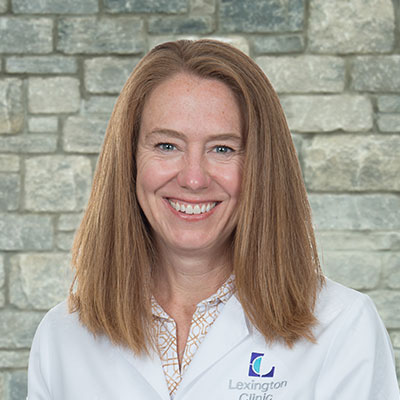by Clarissa Beiting, MD, Lexington Clinic Gynecology
Every year, 13,000 American women are diagnosed with cervical cancer. Although the prospect can be concerning, it is important to know cervical cancer is one of the most preventable types of cancer if you get the proper vaccinations and screenings.
While human papillomavirus (HPV) is the primary cause of cervical cancer, there are other risk factors for it. These include other sexually transmitted infections, having multiple sexual partners, smoking, long-term use of oral contraceptives, and having a weakened immune system.
HPV refers to a group of at least 150 related viruses. HPV is primarily spread through skin-to-skin contact, particularly sexual activity. HPV is categorized into two groups: wart-causing and cancer-causing. More than a dozen types of HPV can cause cervical cancer. It is important to note HPV can cause cancer in males as well as females. HPV can cause multiple types of cancer of the male and female reproductive organs, as well as head and neck cancers. While HPV is common, infections may clear up on their own and may not necessarily lead to cancer.
HPV can be prevented by getting vaccinated against it. HPV vaccines are recommended for adults and children of both sexes to prevent the virus. Because the vaccine offers the best level of protection before a person is sexually active, it is best to administer it to children. The CDC recommends HPV vaccinations for children at 11 or 12-years-old. However, the vaccine can also be administered to adults. It is recommended you speak with a doctor before getting vaccinated.
Screening for cervical cancer usually involves a Pap test (also known as a Pap smear) and/or a HPV test. Pap tests can determine cervical health, and help doctors determine if there are any abnormalities. Current guidelines suggest a woman between the ages of 21-and-29 undergo a Pap every three years. When she turns 30, it is suggested she receive a Pap test every three years, or get an HPV test with a Pap test every five years, or get an HPV test on its own every five years. This should continue until the age of 65. Women 65 and older who have a history of adequate screening and no high-grade precancerous lesions or cervical cancer within the past 25 years may stop screening.
If a woman develops cervical cancer, there are multiple treatment options. The options will vary depending upon the type of cancer, how much it may have spread, and the woman’s age and health. Generally, options include chemotherapy, radiation therapy, and surgery.
Chemotherapy involves using drugs to prevent cancerous cells from growing. Chemotherapy may be given by oral medication or intravenously. Radiation therapy uses radiation to prevent cancer cells from growing or to kill them outright. The type of radiation therapy used depends upon the cancer type and its location. Surgery may be minor and able to remove precancerous cells before they spread. If the cancer is more advanced, more invasive procedures may be necessary.
The prospect of cervical cancer can be daunting, but Lexington Clinic’s compassionate board-certified gynecologists and OB/GYNs are here to help and guide you through treatment, as well as offer care for a wide variety of women’s health needs.

About Clarissa S. Beiting, MD
Dr. Beiting is board-certified in gynecology. She provides services in general gynecology, urogynecology and minimally invasive surgery. Her interests include the work up and treatment of abnormal uterine and menstrual bleeding, the medical and surgical management of uterine fibroids and endometriosis, the surgical treatments for urinary incontinence and pelvic organ prolapse, and vulvar and vaginal disease. Dr. Beiting has more than 20 years of gynecologic surgical experience including minimally invasive hysteroscopic and laparoscopic surgery. She also has extensive experience in da Vinci robotic gynecologic surgery.
Dr. Beiting may be reached at (859) 258-6360. For help scheduling an appointment or to find the location closest to you, visit LexingtonClinic.com.







